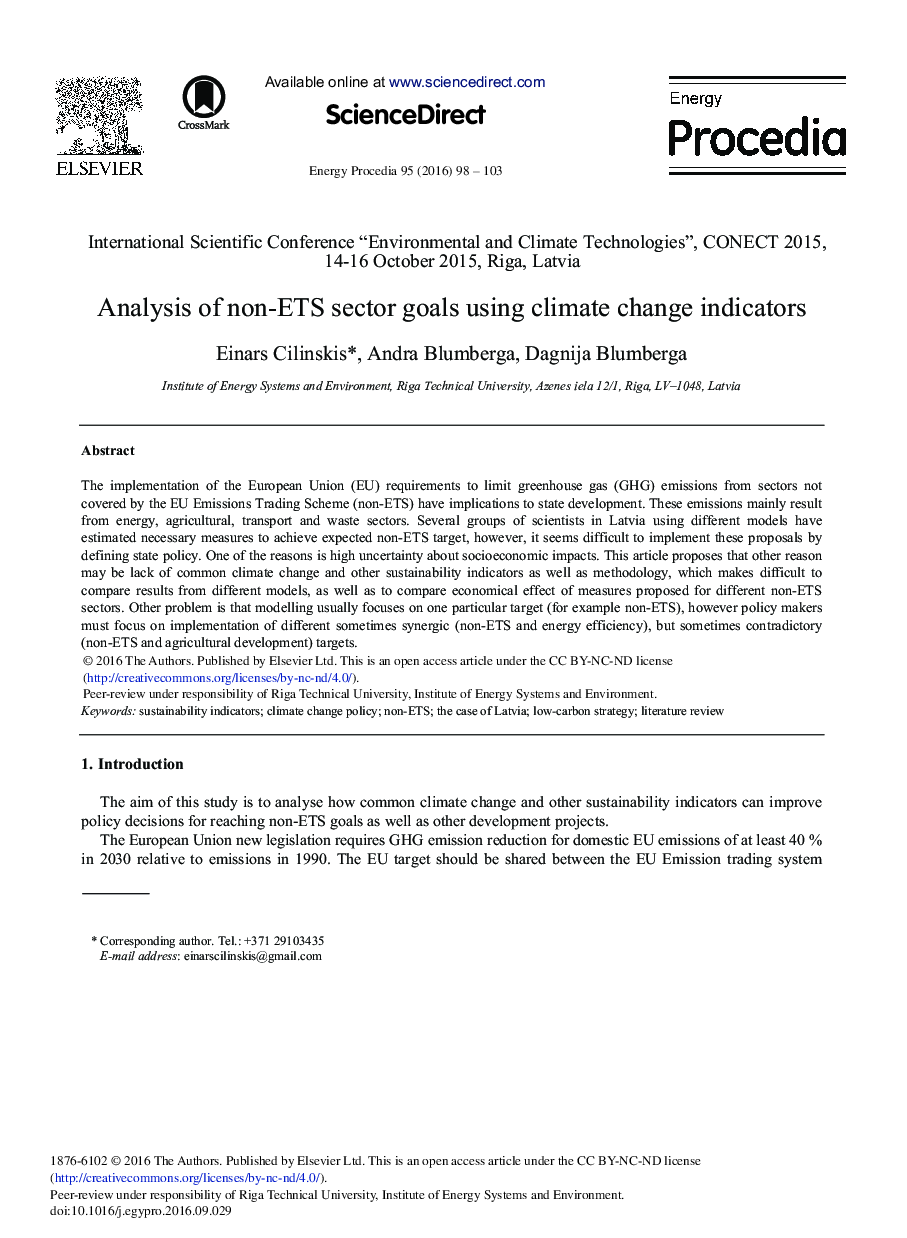| Article ID | Journal | Published Year | Pages | File Type |
|---|---|---|---|---|
| 5446885 | Energy Procedia | 2016 | 6 Pages |
Abstract
The implementation of the European Union (EU) requirements to limit greenhouse gas (GHG) emissions from sectors not covered by the EU Emissions Trading Scheme (non-ETS) have implications to state development. These emissions mainly result from energy, agricultural, transport and waste sectors. Several groups of scientists in Latvia using different models have estimated necessary measures to achieve expected non-ETS target, however, it seems difficult to implement these proposals by defining state policy. One of the reasons is high uncertainty about socioeconomic impacts. This article proposes that other reason may be lack of common climate change and other sustainability indicators as well as methodology, which makes difficult to compare results from different models, as well as to compare economical effect of measures proposed for different non-ETS sectors. Other problem is that modelling usually focuses on one particular target (for example non-ETS), however policy makers must focus on implementation of different sometimes synergic (non-ETS and energy efficiency), but sometimes contradictory (non-ETS and agricultural development) targets.
Related Topics
Physical Sciences and Engineering
Energy
Energy (General)
Authors
Einars Cilinskis, Andra Blumberga, Dagnija Blumberga,
